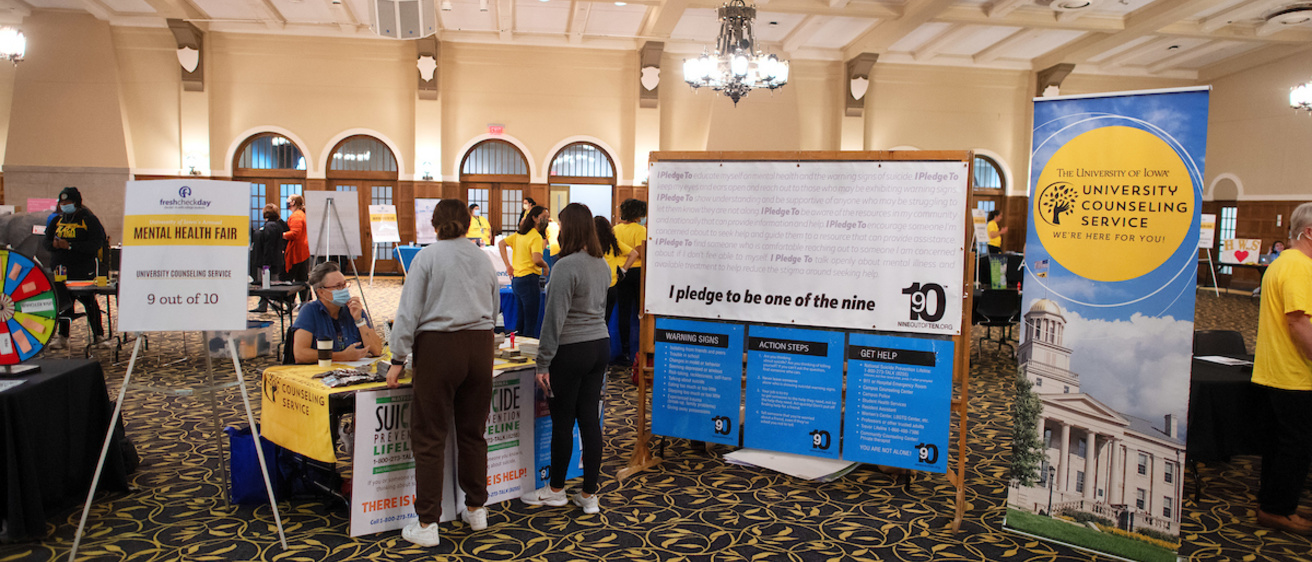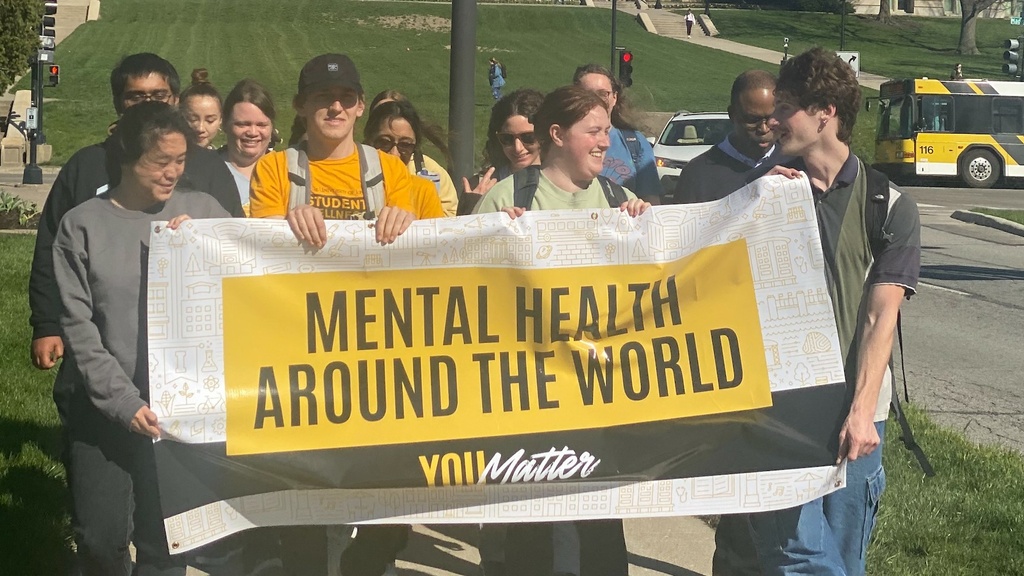Upcoming Training and Events
Fresh Check Day
Date: Wednesday October 23, 2024
Time: 10:00 a.m. - 4:00 p.m.
Location: IMU Main Lounge
Join us for a day full of mental health knowledge, free games, and fun!
Question, Persuade, Refer (QPR)
Question, Persuade, Refer (QPR) is a suicide-prevention training designed to educate people from all walks of life how to recognize the warning signs of suicide. It's available for all UI staff and faculty through the Employee Assistance Program.
Kognito
Kognito is an online, interactive role-play simulation program for students, faculty, and staff that builds awareness, knowledge and skills about mental health and suicide prevention.

